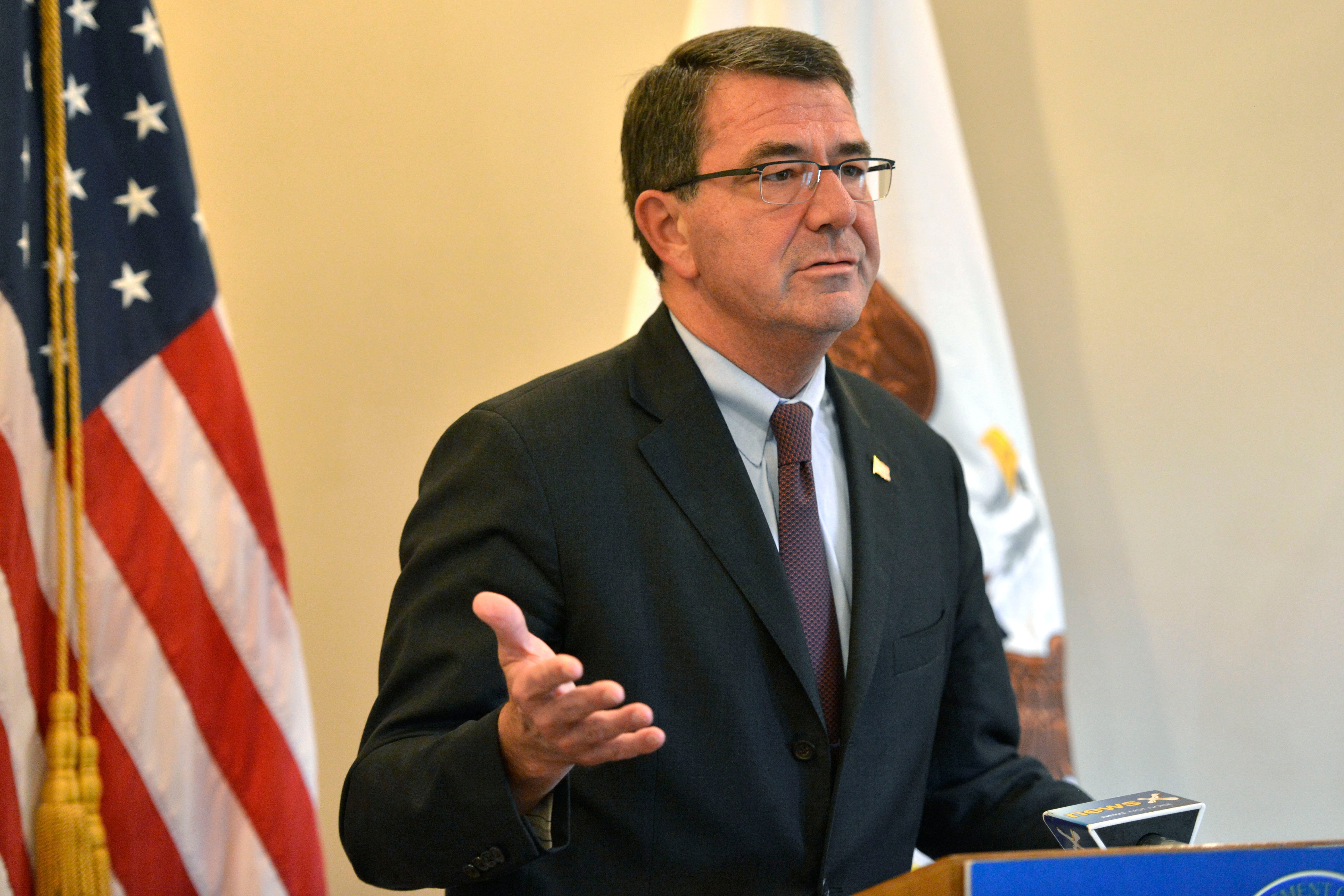
Ashton Carter acknowledged Wednesday that if confirmed as secretary of defense he and the nation “will be confronting some of the most challenging problems we have had in national security in some time.”
Appearing before the Senate Armed Services Committee in a hearing that was markedly less contentious than that of former secretary Chuck Hagel’s two years ago, Carter, who has previously served in a number of top Pentagon positions, said of the immediate threat from the Islamic State in Iraq and Syria (ISIS or ISIL) that its “defeat needs to be lasting defeat, when they get defeated, they stay defeated.”
In Iraq, he said that means building up its security forces to begin taking back territory and holding it against the Islamic extremists. In Syria, it means working with the Free Syrian Army in building up its capacity to fight ISIS, which comes from the Sunni sect, and then the regime of Bashar al-Assad and regional partners.
“It’s important to get territory back soon,” he said.
But Sen. Tim Kaine (D-Va.) noted that 80 percent of air strikes against ISIL in Syria are being conducted by the United States and, with the exception Jordan, no other states in the region.
Committee chair Sen. John McCain (R-Ariz.) called the idea of working together with Iran—which backs Shi’ites in these conflicts—to defeat the extremists first “nonsense and immoral.” Iran supports the Assad regime.
One of those partners, Jordan’s King Abdullah II, met with committee members yesterday and asked for increased military aid on a faster schedule. His Washington visit came on the same day extremists released a video showing a captured Jordanian pilot being burned alive.
Carter said that Afghanistan has “been close to my heart all the time I have been in DOD.” Looking at the timeline to withdraw forces, he said what is needed “requires the United States to continue the campaign and finish the job.” He added, “It’s a plan”—implying that plans can change as conditions change.
Said McCain: “It doesn’t sound like a strategy to me.”
On Eastern Europe, Carter said that he would be looking at supplying Ukraine with lethal arms to defeat pro-Russian separatists in its east and would work to assure Baltic NATO allies of the U.S. commitment to their defense beyond present rotational deployments to the region.
Carter said that President Barack Obama’s recent trip to India showed the two nations are “destined” to become strategic partners over time. He said he viewed the rebalancing to the Pacific, even in times of crises in Europe and the Middle East, “as a commitment to continue” the U.S. role there in maintaining peace and stability. “I think the world needs to know the United States can do more than one thing.”
Noting the number of threats, he said “It was a simpler world” during the Cold War. “There was one big problem. I believe we are up to it” today in meeting a number of challenges across the globe.
As the No. 2 civilian and before that the Pentagon’s chief weapons buyer Carter said he would bring that experience and his passions to the secretary’s office if confirmed. “When troops said we needed something, the response of the bureaucracy [was] we had one of those” once—followed by “we’ll have it in 10 years.”
During the Cold War, the department “got in the habit of doing things very slowly.” Reflecting on his rapid buying on Mine-Resistant, Ambush Protected vehicles and other defenses against improvised explosive devices (IEDs), he added, “You can’t do that in the middle of a war. You’ve got to [get the equipment to service members] faster.”
He said that if confirmed—and confirmation is expected—he will be “re-introducing the role of the customer—the services” in the acquisition process. He also wants transparent audits of the Pentagon’s accounts, including identifying how many contractors it is hiring, how many DoD civilians and service members serve in staff positions, and the life-cycle costs of all weapons systems such as the F-35, just entering the aviation fleets.
Carter said, “We’ve just got to get rid of the overhead.” He expressed doubts about the value of creating new commands for cyber or even new headquarters.
In his opening statement, McCain cited the $2.4 billion cost overrun in the Gerald Ford-class nuclear-powered aircraft carrier; “the undefined requirements, unrealistic initial cost estimate and unreliable assessment of technological- and integration risk” in the Littoral Combat Ship program; and the increase in the projected cost of fielding 2,400 F-35s as leading to the “slow degradation of America’s defense technological advantage.”
Carter said he looked forward to working with the committee on overhauling defense acquisition, which is also a priority of Rep. Mac Thornberry, (R-Texas), chairman of the House Armed Services Committee.
On combating sexual assault, Carter said, “I’ll feel the heat, and I’ll understand it” to ensure the department does everything possible to reduce incidents and prosecute predators. “Retaliation [by peers and within a unit] is a dimension of the problem” that needs to be addressed immediately. In a recent DOD survey, retaliation at that level was reported by more than 60 percent of those who reported a sexual assault.





